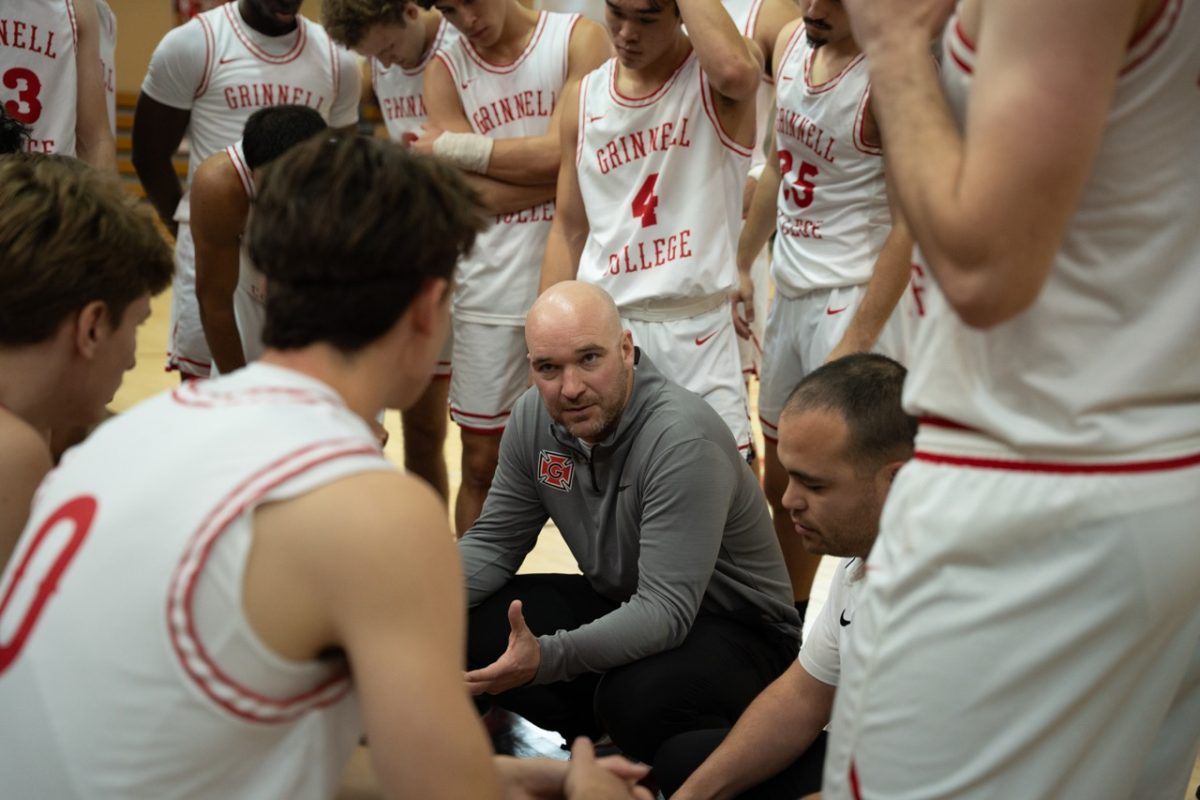By Chloe Moryl
Sadly, the Winter Olympic Games have come to a close. Team USA won the medal count—yay! Other countries did well too—yay! Go World! But while many American students were holed up in our houses and lounges, supporting Johnny Weir or Lindsey Vonn or Shaun White, we have to remember that the Grinnell College student body is 13 percent international students, and the Olympics aren’t all about Team USA taking home the gold.
For Ria Laureijs ’10, who was born in Nova Scotia, Canada, getting excited about the Winter Olympics has to do with a lot of early exposure to the sports that are played at the games.
“I went home for a weekend and my parents were sitting in front of the TV watching a women’s gold medal curling match, like analyzing technique and using all this jargon because, I mean, they went to couples curling every day when they were first married, Laureijs said. “My mom was the captain of her curling squad, so it’s just what you’re exposed to. Everybody watched figure skating and everybody played hockey—I spent more time at the rink watching the boys play hockey than was probably healthy.”
Naturally, for Laureijs and other Canadians, the defeat of the USA men’s hockey team was the highlight of the Winter Games.
“It was huge. It was huge and it was … I think it’s one of those things that I don’t think Americans quite realize how important it is,” Laureijs said. “If we lost the gold medal—like yeah, we didn’t win the medal count—but if we had lost the gold medal in men’s hockey, or women’s hockey but men’s hockey specifically, it would have been just devastating.”
Sure, the Canada-America hockey rivalry may be at the forefront of many Olympic-enthusiasts’ minds, but what other countries hold grudge matches?
Shunji Ukai ’11 of Japan cites the Japanese rivalry with Korea on the ice as a major source of Olympics debate.
“I read Japanese newspapers every day and figure skating is a big deal,” Ukai said. “They talk about Korea versus Japan, how it’s the biggest rivalry, how we have to beat and will beat Korea.”
Even beyond this Winter Games rivalry, Ukai spoke about his country’s strength in the Summer Games as well, and Japan’s pride in besting typical powerhouses like the U.S.
“In summer, soccer is big. And softball and baseball too,” Ukai said. “The Japanese teams are really good at baseball and softball, we’ve won and beat American teams for a while now. The Japanese are like, ‘They made up this goddamn sport so let’s beat them at it.’”
Some students, however, don’t have such strong ties to the importance of the games.
“I just don’t care,” said Swayam Bagaria ’13, a student from Calcutta, India. “We don’t have any athletes really competing so I just don’t watch the Winter Olympics.”
Though Bagaria doesn’t actively watch the Winter or Summer Olympics, he did point to a proud moment in Indian Olympic history.
“We did have a shooter win the gold a while ago,” Bagaria said. He’s speaking of Abhinav Bindra, who made his Olympic debut at the Sydney Games in 2000, was the youngest shooter to ever be at the Olympics and won India’s first gold.
“He’s a hero because he won the first gold medal for India at the Olympics, so he’s basically a celebrity,” Bagaria said. In terms of this year’s Winter Games, however, Bagaria said, “But yeah, look at the medal race—India has zero.”
But medal races aside, the Olympics is about bringing countries together to support each other. With many tragedies surround the games, both personal and national, Laureijs commented on one Canadian skater’s personal tragedy—Joannie Rochette.
“She won bronze in figure skating a week after her mother died. It was amazing, and so beautiful—I was crying watching her skate,” Laureijs said. “The nice thing about Joannie is that she’s an example of how the Olympics can bring people of different nationalities together, too. I think she had an outpouring of support from a ton of people, which is a pretty amazing thing in such a competitive tournament. I think she’s going to be remembered for a long, long time, and rightfully so.”



















































